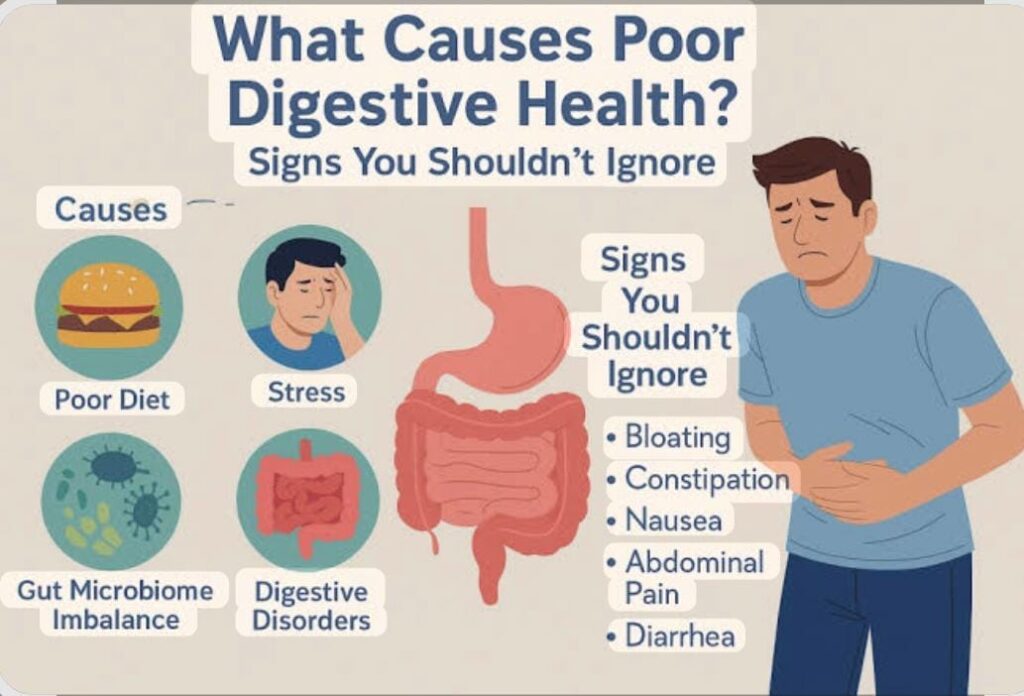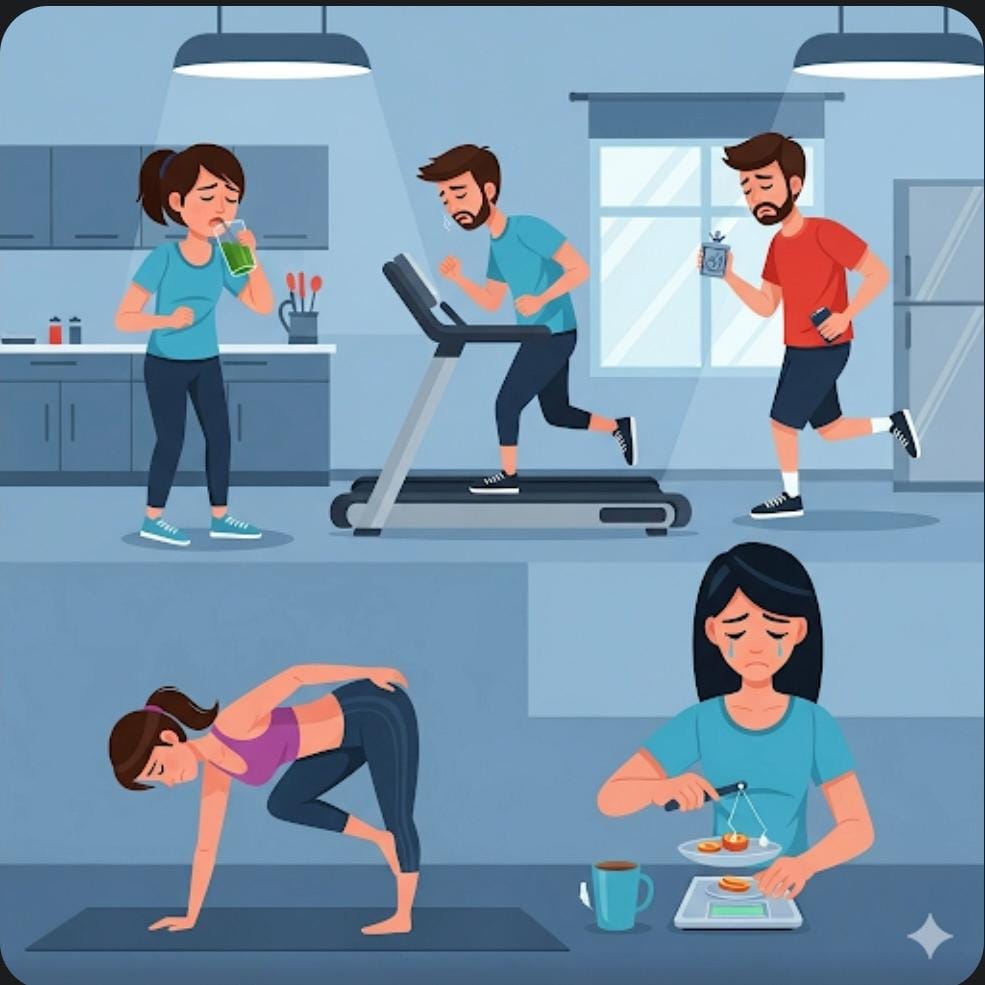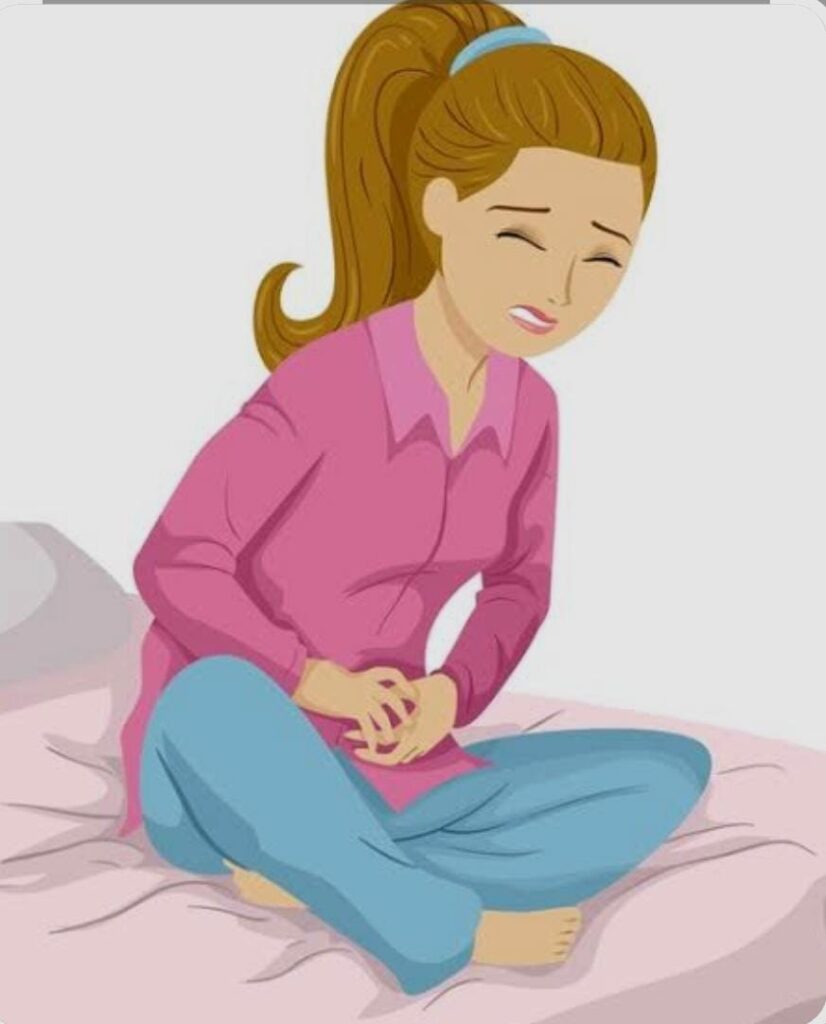Your “Healthy” Brunch Habit Is Silently Killing Your Metabolism

The Ayurvedic Truth No One Told You 🌿 🔥 You’ve been told brunch is balanced. You’ve been told eating every few hours “keeps your metabolism high.” But what if those very “healthy” habits are the reason you feel bloated, dull, and stuck — no matter how clean you eat or how many smoothies you sip? According to Ayurveda, it’s not just what you eat that matters — it’s when you eat. And your late-morning brunch might be quietly putting out your Agni — your sacred digestive fire. 🔥 What Is Agni — The Flame That Fuels Your Life !!! Agni isn’t just digestion. It’s your inner fire — the force that transforms food into energy, clarity, and vitality. When Agni burns bright, you feel: ✅ Light yet strong✅ Energetic yet calm✅ Focused yet peaceful But here’s the truth — Agni rises and falls with the sun. It wakes with sunrise.It peaks at midday.It rests by sunset. Every time you eat at the wrong time, you’re throwing wet wood on a dying flame. 🚨 The Hidden Dangers of Brunch & All-Day Snacking 🕚 The 11 AM Brunch Trap Skipping breakfast and eating late might feel modern and efficient — but your digestive system disagrees. By 11 AM, your Agni is weak and waiting. Dumping a heavy brunch on it is like asking a sleepy fire to burn a wet log. Result? 🍞 Half-digested food → forms Ama (toxins) 🍬 Blood sugar spikes → then crashes 😴 Energy feels unstable 🌙 Body clock loses rhythm That “fit” avocado toast might actually be harming your metabolism. 🍿 The Snack-All-Day Lie “Eat every 2–3 hours” sounds smart — but it’s not. Every snack forces your digestive fire to restart. Constant eating means your Agni never rests or rebuilds. Over time this leads to: ❌ Depleted enzymes❌ Gut wall damage❌ Ama buildup❌ A sluggish, confused metabolism Your gut becomes a tired factory that never shuts down — always producing half-finished work. 🌞 The Ayurvedic Rhythm of Fire Time Agni State What to Eat ? 6–10 AM Gentle flame Light, warm foods — porridge, stewed fruits, herbal teas 10 AM–2 PM Peak blaze Heaviest meal — your true lunch 6–8 PM Dimming fire Light soups, steamed veggies, easy grains When you align your meals with nature’s clock, your metabolism naturally realigns too. 🩺 What Happens When You Ignore Agni? ⚖️ Metabolic chaos → weight gain, fatigue, insulin resistance ☁️ Ama buildup → white tongue, bloating, brain fog 🌀 Hormonal imbalance → thyroid, PCOS, irregular cycles 🔥 Inflammation → allergies, IBS, fatigue, low mood Ignore Agni long enough… and you invite disease. 🛑 Break the Brunch Addiction 🌤 Shift brunch to an early lunch at 12 PM 🍵 Replace snacks with warm herbal teas 🍛 Make lunch your biggest and happiest meal 🌙 Stop eating 3 hours before bed Yes — your body will resist at first. But once your natural hunger returns with sunrise, you’ll feel a new rhythm, new energy, and new life !!!
“Is Your Gut Screaming What Your Mouth Can’t Say?”

Emotional Baggage Isn’t Just Mental — It Lives in Your Belly Too This month, I saw a trend I couldn’t ignore.Almost every IBS (Irritable Bowel Syndrome) case I encountered had one silent root cause: – unspoken emotional stress. Breakups. Unprocessed grief. Deadlines. Family pressure. And more often than not—men who never let it out. —🧠💔 Your Gut Is More Than a Digestion MachineIn Ayurveda, your gut (Grahani) is closely tied to Manovaha Srotas—the channel of the mind. When emotions stay stuck, they don’t disappear. They travel through your nerves, tighten your abdomen, disturb Apana and Samana Vayu, and show up as: 💨 Bloating 🔥 Acidity ⚡ Cramping ❌ Irregular bowels 😰 Constant discomfort without clear food triggers— ⚠️ Not All Gut Issues Come From Food Sometimes, it’s not about what you ate…It’s about what’s eating you inside. That sharp pain after a fight, the loose motion before an interview, the bloating during heartbreak—it’s your body’s way of processing unprocessed emotion. And most of us—especially men—have been conditioned to suppress rather than express. —🌬️ Unspoken Emotions = Aggravated VataAccording to Ayurveda, unexpressed emotions like fear, anxiety, grief, and loneliness disturb Vata dosha, which governs both the mind and the large intestine. This leads to:Dryness and irregularity in bowels Gas retention and cramping Insomnia and palpitations Feeling overwhelmed and disconnected— 🧘🏽♂️ What Can Help? Gentle, Daily Gut–Mind Resets :Abhyanga (warm oil massage) to ground Vata Nasya with calming herbs like Brahmi or Jatamansi Deep belly breathing + slow exhalation (activates Apana Vayu) Journaling before bed — let your mind speak on paper Ashwagandha or Shankhpushpi under guidance to regulate nervous tension Light, warm, gut-friendly food and early dinners to support healing— 🔍 Let’s Flip the Question:Is your gut the problem, or is it trying to protect you from your suppressed pain?— 💥 You’re not weak for feeling it—you’re wise for listening to it. Because when you silence your emotions, your gut speaks louder. And no medicine works if you’re still bottling it up inside.
🔥 “Why Is Your 7-Year-Old Facing Hormonal Storms?

The Hidden Dangers Lurking in Her Daily Routine!” In today’s fast-paced, indoor world, childhood is silently being robbed. When a child hits puberty before they even understand what puberty is — something’s terribly off. And Ayurveda sees this as a warning, not just a milestone. Let’s decode how early puberty is not just an “early growth” issue, but a deeper imbalance rooted in a disturbed HPO axis (Hypothalamic-Pituitary-Ovarian). And it all begins at home — in habits we once thought were harmless. 💣 What’s Really Messing Up Their Hormones? 🛏️ Lack of Deep Sleep (Nidra)Without proper sleep, the body’s repair cycle is broken. The pineal gland, which controls melatonin, misfires — leading to hormonal confusion in the body. ☀️ No Sunlight = Vitamin D CrashChildren today are sun-deprived. And without Vitamin D, hormone receptors in the brain and ovaries don’t function well. This is one of the major triggers for early puberty and thyroid dysfunction. 🏃♂️ Zero Physical Play = Poor Agni + Stagnant DoshasMovement keeps metabolism alive. Sitting with screens slows digestion (Mandagni), increases Kapha, and makes the body sluggish — a perfect breeding ground for early hormonal activation. 💄 Cosmetics, Perfumed Products, and Endocrine DisruptorsSoaps, lotions, talcs, and even “kids’ perfumes” — most are loaded with xenoestrogens. These mimic real hormones and confuse the body’s feedback system, especially the HPO axis, setting the stage for ovarian cysts, irregular periods, and thyroid dysfunction even before teens. 🥤 Plastic Bottles, Packaged Snacks, Hormone-Pumped DairyThese daily consumables often carry hidden hormone disruptors. Ayurveda strictly forbids such Ahitkara Aharas (incompatible foods), especially during childhood when Dhatus are still developing. 🧂 Hidden Anxiety + Early Screen Exposure = Vata AggravationEven subtle emotional stress — school pressure, screen violence, peer comparison — can aggravate Vata, disturb Manas, and prematurely stimulate hormonal centers. 🧨 Bold Closing Line: “Let your child bloom when it’s time — not under the artificial heat of cosmetics, screens, and chaos. Puberty is not a race. It’s a sacred rite. And you, as a parent, hold the remote.”
🧠 The Gut is Not a Dustbin for Trends — Stop Polluting It in the Name of Detox !!!

An Ayurvedic Wake-Up Call to Everyone Who Starts the Day with Lemon, Honey, and Tea “I begin my day with hot water, lemon, and honey — it detoxes me.” “Doctor, I can’t pass stools without my morning tea.” These are not just casual statements anymore. They are warning signs of a deep disconnect between the body and its inner intelligence. As an Ayurvedic physician, I hear this daily — and it’s alarming !!! 🕒 Your Body Is Not Ready for These “Healthy Habits” in the Morning According to Ayurveda, the hours after sunrise belong to Kapha Kala — a naturally slow, heavy, and cold time. This is when: Agni (digestive fire) is at its weakest. The body is gently waking up. Digestion, metabolism, and elimination need nourishment, not provocation. Now imagine starting your day with… 🔥 Lemon Water: Pouring Fire on a Sleeping Flame Lemon is Pitta-vardhaka — it increases heat in the body. Drinking it on an empty stomach overstimulates stomach acids, aggravates Pitta dosha, and weakens Agni over time. If you already suffer from acidity, headaches, skin issues, or irritability — this morning ritual may be feeding the fire, not fighting it 😒 🧪 Honey + Hot Water = A Toxic Combo 🤥 Ayurveda clearly warns: Heated honey becomes Ama-karaka — it produces toxins. Mixing honey in hot water turns it heavy, sticky, and difficult to digest. This once-popular habit is actually Viruddha Ahara (incompatible food), and even modern science is catching up with the evidence. 🍵 Tea to Pass Stools? You’re Masking a Bigger Problem 😔 Tea may give you temporary bowel relief — but at what cost? 🥺It irritates the colon. 😲It aggravates Vata. 😒It creates dependency. And most importantly, it prevents your body from learning to eliminate naturally. 📍If your gut can’t move without stimulation, that’s not balance — that’s dysfunction. 💡 Real Detox is Not in a Cup — It’s in Your Daily Choices True detoxification in Ayurveda isn’t about punishing the body with acids and stimulants. It’s about: 🍀Strengthening Agni. 🍀Eating fresh, warm, seasonal foods. 🍀Following a Dinacharya (daily routine). 🍀Understanding your Prakriti (body constitution) and Vikriti (imbalance) before following anyone else’s advice. 🚨 So here’s the truth bomb: If your gut depends on a drink to wake up, it’s not detoxing — it’s distressed. Every time you imitate a trend instead of listening to your body, you’re silencing nature’s most ancient wisdom — your gut. The gut doesn’t need gimmicks !!! It needs grounding 🙂
Love Fruits? You Might Be Eating Them All Wrong!!!

8 Ayurvedic Rules to Enjoy Fruits Without Damaging Your Digestion Hello,You love fruits.They’re sweet, juicy, and feel healthy. But… is your gut truly enjoying them too?If you often feel bloated, acidic, or gassy—even after eating “healthy” fruits—this one’s for you. Ayurveda says: It’s not just what you eat, but how and when you eat it that makes all the difference. 🍌 1. Ripe Over Raw—Always! Unripe or sour fruits can trigger acidity, heartburn, and gas. Especially if you already deal with digestive issues, only go for ripe, sweet fruits. They’re easier on your gut and balance Pitta. 🗓️ 2. Eat Seasonal, Eat Smart Nature gives us what we need, when we need it. Cooling, water-rich fruits like watermelon in summer, and grounding ones like guava in winter—follow nature’s rhythm and your digestion will thank you. 🥛 3. Stop Mixing Fruits With Milk, Curd, or Ghee Milkshakes, fruit curd bowls, smoothies? ❌Ayurvedic text Yogaratnakara clearly warns—dairy + fruit = toxic combo for the gut. It leads to Ama (undigested waste), skin issues, and fatigue. 🕐 4. Eat Fruits Solo—Not After Meals Fruits digest fast. When you mix them with roti, dal, or rice, they get trapped and start fermenting.Eat fruits 30–60 minutes before meals, or as a snack—not dessert. 🍽️ 5. Don’t Overeat Fruits Yes, they’re natural. No, that doesn’t mean unlimited.Too many fruits disturb Agni (digestive fire), weaken metabolism, and cause sluggishness. 🍎 6. Cook Your Fruits If You Have Gut Sensitivity Got IBS, bloating, or leaky gut? Skip raw fruits.Stewed apples or pears with cinnamon are gentle and healing. They soothe inflamed intestines and nourish the gut lining. 🌙 7. Say No to Fruits After Sunset Fruits are cooling and heavy. Post-sunset, they slow digestion and increase Kapha—leading to weight gain, brain fog, and disturbed sleep.Keep your fruits for the daylight hours. 🚫 8. Watch Out for Fruit Traps Fruit juices (without fiber), fruit with sugar toppings, fruit in processed yogurts—all these lose the prana (life force) and cause more harm than good. Whole fruits, eaten wisely, are your best friends. ✨Your Body Is Already Giving You Clues If a fruit makes you feel off—respect that signal.Instead of blaming the fruit, correct your digestion.Because when Agni is strong, even simple foods become nourishing medicine. 🔥 Don’t let your “healthy” habits harm you. Eat fruits the Ayurvedic way—and make them your medicine, not your mistake.
🚨 ⚡ “ADHD, Anxiety, Autism—Why Sunrise Matters More Than Any Supplement”

Everyone’s chasing another motivational quote.But let me tell you what nobody dares to say—👉 Your snooze button is silently becoming your disease button. Because the body you drag out of bed at 8 am… is not the body Ayurveda designed. ⚠️ THE HIDDEN HEALTH CRISIS ADHD diagnoses exploding by 42% in just 10 years 1 in 36 children now on the autism spectrum Adults drowning in 7+ hours of screen time daily 70% walking around in a mental fog Sleep disorders strangling 1 in 3 adults Anxiety and depression spiraling at record highs This isn’t random.This is the direct cost of abandoning nature’s clock. 🌅 BRAHMA MUHURTA: THE HOUR THAT HEALS Ayurveda screams this truth loud and clear:If you move your body before sunrise, medicine becomes optional.If you don’t, medicine becomes inevitable. Between 4 am – 6 am (Vata time) your nervous system is programmed for clarity, creativity, and movement. Ignore it… and you set off a chain reaction of sluggishness, anxiety, and chaos for the whole day. 🧠 WHAT HAPPENS IF YOU SWEAT BEFORE 7? Your brain floods with dopamine & serotonin naturally (the same chemicals ADHD meds chase) Cortisol drops instead of spiking — protecting you from anxiety and inflammation Agni (digestive fire) lights up, preventing bloating, brain fog, and emotional heaviness Your circadian rhythm resets — giving you real, deep sleep at night instead of Netflix-driven insomnia Vata dosha stabilizes — scattered thoughts turn into laser focus This isn’t exercise.This is daily neurological therapy, built into nature’s design. 🚫 WHAT IF YOU DON’T? You wake straight into Kapha time (6–10 am): heaviness, dullness, sluggish metabolism Your gut stays weak, your brain stays foggy, your mood stays fragile ADHD and anxiety flare harder, sensory overload hits sooner, and sleep gets worse You burn coffee and pills all day… instead of burning ama (toxins) in the morning Skipping morning movement isn’t harmless.It is self-inflicted neurochemical sabotage. 🔥 THE AYURVEDIC VERDICT Ayurveda doesn’t whisper here. It shouts: “Rise with the sun or rust with regret.” Your body doesn’t need another caffeine shot. Your mind doesn’t need another motivational reel. It needs the rhythm it was born for. ❓THE QUESTION YOU MUST FACE You can either:✅ Move with the sunrise and let your own biology heal you ❌ Or wake late, fight fog, chase dopamine, swallow pills, and call it “normal life.” 💥 Every morning you ignore the sunrise… you’re silently signing a contract with future disease. So tell me—will you rise to meet health, or sleep into your decay?”
The Hidden Design: Is Modern Medicine Healing You or Hooking You?

Take the pill. Silence the symptom. Come back next month when it’s worse. Sound familiar? This is the loop most people are trapped in. And yet, we still wonder why chronic illness is everywhere. Here’s the uncomfortable truth: 👉 The system isn’t broken. It’s working exactly as it was designed. A system built not for healing, but for lifelong dependency. Not to free you, but to keep you tied. Not to fix the root, but to mute the voice of your body until it screams louder. The Rockefeller Twist Most People Don’t Know Over a century ago, John D. Rockefeller saw oil not only as fuel—but as a pathway into medicine. He poured millions into medical schools and institutions, promoting a petrochemical-based model of healthcare while discrediting natural healing systems that had been used for centuries. Herbal medicine, holistic healing, and traditional therapies were mocked, sidelined, and branded as “unscientific.” Meanwhile, pharmaceuticals—derived from oil byproducts—were elevated as the “future of medicine.” This wasn’t about better health. It was about better business. And the ripple effect of that decision still shapes medicine today. Why this matters more than ever? Rates of diabetes, thyroid disease, autoimmune disorders, and mental health struggles are skyrocketing—even though medical spending is at its highest in history. New drugs arrive every year, but so do new diseases. Patients are surviving—but not thriving. We’ve been conditioned to treat symptoms like enemies. ❌ Fever? Suppress it. ❌ Pain? Kill it. ❌ Anxiety? Numb it. But these aren’t random punishments from your body. They’re signals. Warnings. Flashing lights on the dashboard of your health. What real healing looks like? Healing isn’t about silencing your body. It’s about understanding it. ✅ Supporting natural detox pathways. ✅ Nourishing deficiencies instead of masking them. ✅ Addressing gut health, hormones, sleep, and stress. ✅ Getting to the root cause, not just covering it up. Because your body isn’t broken. It’s brilliant .Every single symptom is a coded message, waiting for you to decode. 💥 “Rockefeller turned oil into medicine. But you don’t have to let that system turn you into a lifelong customer.”
🔥“Your Laptop Isn’t Burning You Out. Your Gut Is.”

78% of IT professionals are silently living with digestive fire gone rogue — and most will never realize it until it’s too late. A recent observation aligned with Ayurvedic insights reveals a growing epidemic among IT workers — not viral, but visceral. It’s not just work pressure. It’s Agnimandya (weakened digestive fire), Amlapitta (acid disorders), and deep-rooted doshic imbalance that is slowly corroding your health from within. 🔍 What the data says (and Ayurveda confirms): 78% suffer from some form of ulcerative or acid disorder. 64% experience chronic acid reflux due to elevated Pitta and unmanaged mental stress (Manasika Vega). 39% depend on antacids and painkillers — mere symptom suppressors that worsen Agni over time. 🚨If You’re in IT, You’re at Risk If You: 1. Eat while working, skip meals, or binge at odd hours — a clear path to Vishama Agni. 2. Rely on caffeine, spicy snacks, or processed food — all of which enrage Pitta. 3. Work late into the night — disturbing your biological doshic rhythm. 4. Pop painkillers and antacids — Avarana (masking) the root imbalance, never healing it. 🩸Left unchecked, these imbalances evolve into: Internal bleeding (Raktapitta) → fatigue, anemia (Pandu), loss of vitality Perforation → tissue destruction from deep Pitta Dushti GI cancers → long-term Ama buildup, chronic inflammation, and deranged Agni 🛑 Your career won’t wait. But neither will disease. When your gut burns in silence, the whole body suffers in chaos. 🛠️ Here’s Your Ayurvedic Rescue Protocol: 🔸 Eat with rhythm. Follow Ahara Vidhi Vidhanam — eat warm, fresh food at the right time. 🔸 Balance Pitta. Avoid excessive spice, sour, and stimulants. Add cooling herbs like Shatavari, Amalaki. 🔸 Practice mindful digestion. Chew well, don’t rush. Let meals be rituals, not routines. 🔸 Restore gut fire. Use Deepana and Pachana herbs — not antacids. 🔸 Limit pill-dependence. Treat the cause, not the consequence. 🔸 Honor your Agni. It’s the root of life. Protect it like a sacred flame. 💥If your gut fire dies, no amount of hustle can keep your life lit.” Don’t wait for a hospital bed to make you respect your Agni. Ayurveda is not a backup plan — it’s the foundation.
“Stop Calling It Ayurveda: Why That Fancy Spa is Not Healing You — It’s Hiding You”

An eye-opening truth from an Ayurvedic physician who sees beyond the scented smokescreen. “No, That’s Not Ayurveda — That’s a Spa Disguised in a Sari” Don’t confuse scented silence for soul healing. Read this before your next ‘Ayurvedic spa’ visit. 🧠 You book an “Ayurvedic massage” expecting healing. You lie down, soft music plays, warm oil drips… You feel calm — for a few hours. But your bloating returns, your hair keeps falling, your moods stay unpredictable, and your sleep is still broken. You’ve been sold a lie wrapped in lavender oil.Let’s challenge it. 🚨 The Claim: “Spa is an Ayurvedic service.” Here’s why this belief falls flat when looked at through three powerful lenses: 🪔 1. Classical Ayurveda Perspective (Shastra & Sampradaya) Truth: Ayurveda is not a relaxation industry. It’s a science of life. ☝️Flaws in the argument: No proper prakriti–vikriti analysis in spas. No roga–rogi pariksha before applying treatments. Oils are often fragranced, not herb-infused as per need. Timing, pressure, and strokes are random, not dosha-specific. Stronger Alternative: → “Abhyanga is not a massage. It’s a medicated ritual tailored for your imbalances and designed to detoxify, balance, and stabilize the nervous system.” 💊 2. Healing Outcome Perspective (What Your Body Actually Needs) Truth: Spas relax your muscles. Ayurveda restores your agni, clears ama, and realigns mind-body rhythms. ☝️Flaws in the argument: No focus on gut health, detox, or rebuilding immunity. Missing diet, herbs, and daily routine. No follow-up or root cause reversal. Stronger Alternative: → “Healing isn’t soft towels and oils — it’s restoring cellular intelligence through ahara, vihara, ushna sneha, and shodhana.” 🧠 3. Cultural & Commercial Perspective (Branding & Misinformation) 😎Truth: The term “Ayurvedic spa” is a branding gimmick. It misleads people and erodes the dignity of Ayurveda’s rich heritage. 💀Flaws in the argument: Ayurveda becomes commercialized, not personalized. People mistake pampering for panchakarma. Ayurveda loses its medical credibility and becomes a luxury product. 📍Stronger Alternative: → “Ayurveda clinics or panchakarma centers offer medically supervised, authentic therapies — rooted in centuries of wisdom, not western wellness trends.” 🪷 More Points to Strengthen the Argument: Real Ayurveda includes mind purification (manas shuddhi) along with body cleansing. Seasonality and dosha cycles are ignored in spa therapies. 😒 Classical texts describe contraindications for oil massage (e.g., sama dosha, heavy kapha, unprocessed ama) — which are rarely followed in spas. 😡Many spa oils block srotas, whereas Ayurvedic oils open them. ⚡Spa treatments often worsen conditions like sinusitis, eczema, or hormonal acne due to poor assessment. 🔥 “If the hand that oils your body hasn’t read your pulse, your tongue, or your gut — it’s not Ayurveda. It’s just a performance of healing, not the process of it.” ✅ Summary Call-to-Action (for your flyer, website, or reel): Stop booking spas in the name of Ayurveda.Start reclaiming therapies that honour your body, mind, and inner fire.Healing is not a luxury — it’s your right. Choose wisely
🥬🍇 Non-Seasonal Fruits Are Not “Health” — They’re Silent Allergens, Especially for Your Gut, Skin & Thyroid.

Do you pick fruits and veggies based on what looks good? Or based on what nature is offering this season? Because here’s the harsh truth, dear: > ❗Every 2nd person today is walking around with skin rashes, sneezing fits, sinus congestion, or constant bloating — And most of them don’t even know the real trigger: Non-seasonal foods. 🌿 Ayurveda says: “Kaala bhojana is Amrut. Akaala bhojana is Vish.” (Eating seasonal is nectar. Eating off-season is poison.) When you eat grapes in monsoon, watermelon in winter, or cauliflower in summer, you’re not feeding your health — you’re confusing your gut intelligence. 👇 Here’s how non-seasonal foods silently attack your body: 💨 Respiratory flare-ups – Cold-natured fruits in cold weather worsen Kapha → asthma, sinus, sneezing, throat irritation 🔥 Skin allergies & rashes – Pitta imbalance from unnatural harvest cycles → eczema, acne, itching 🧠 Thyroid imbalance – Off-season fruits don’t match your dosha rhythm → sluggishness, weight gain, fatigue 🧫 Gut chaos – Non-ripened fruits = ama = indigestion, bloating, food intolerance 🧬 Poor nutrient absorption – Your gut rejects what doesn’t match the season’s digestive fire 🤔 Think About It: Why are we buying exotic, imported, or cold-stored foods in tropical India? Nature doesn’t offer watermelon in December for a reason. Your thyroid doesn’t want cold fruits in cold weather. Your gut doesn’t want heavy veggies when the fire is low. ✅ Eat with the season, and your symptoms melt: ✔️ Clearer skin ✔️ Easier digestion ✔️ Less mucus, less sneezing ✔️ Improved metabolism ✔️ Calmer thyroid values 📢Seasonal eating is not old-school. It’s life-saving. Your gut, your skin, and your thyroid are begging for balance. Honor the wisdom of the seasons — not the supermarket shelves !!!
